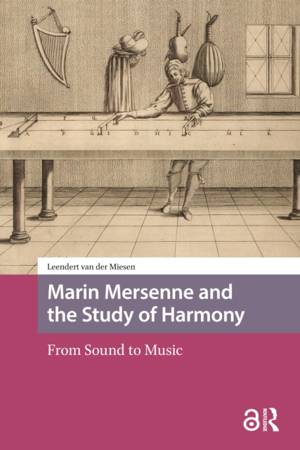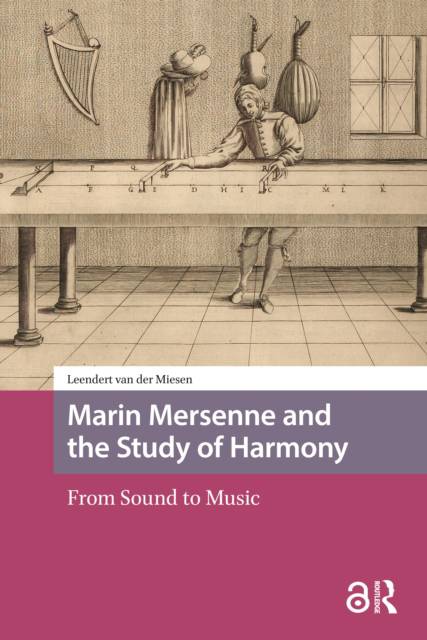
- Afhalen na 1 uur in een winkel met voorraad
- Gratis thuislevering in België vanaf € 30
- Ruim aanbod met 7 miljoen producten
- Afhalen na 1 uur in een winkel met voorraad
- Gratis thuislevering in België vanaf € 30
- Ruim aanbod met 7 miljoen producten
€ 223,45
+ 446 punten
Omschrijving
Marin Mersenne and the Study of Harmony delves into the central role of music among the early modern sciences by focusing on the work of the French polymath Marin Mersenne (1588-1648). Although now regarded more as an art than a science, music was for many early modern scholars a universal science for studying the harmonies present in all beings. For Mersenne, music's ability to be quantified while being experienced aesthetically meant that it was the central science to approximate the sounding and inaudible harmonies present in the world and universe at large. Bringing together Mersenne's interests in the physics of sound and hearing, musical composition, instruments, curiosities, and music from outside Europe, this book shows why so many scholars were drawn to music and how music was at the center of the early modern debate on the foundations of knowledge.
Specificaties
Betrokkenen
- Auteur(s):
- Uitgeverij:
Inhoud
- Aantal bladzijden:
- 362
- Taal:
- Engels
- Reeks:
Eigenschappen
- Productcode (EAN):
- 9789048564132
- Verschijningsdatum:
- 7/04/2025
- Uitvoering:
- Hardcover
- Formaat:
- Genaaid
- Afmetingen:
- 157 mm x 236 mm
- Gewicht:
- 748 g

Alleen bij Standaard Boekhandel
+ 446 punten op je klantenkaart van Standaard Boekhandel
Beoordelingen
We publiceren alleen reviews die voldoen aan de voorwaarden voor reviews. Bekijk onze voorwaarden voor reviews.










